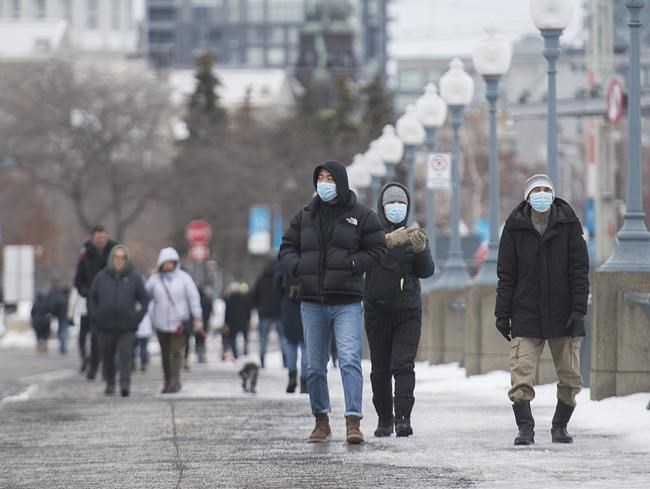MONTREAL — Police cars with flashing lights were out in force in the streets of Montreal on Saturday night as a curfew meant to curb a rising tide of COVID-19 cases took effect across Quebec.
The measure went into effect at 8 p.m., prompting a small rush for home as well as scattered protests.
The measure is billed as a way to prevent gatherings that have fueled the rampant spread of the virus, Premier Francois Legault said Saturday, and to protect a hospital system at risk of being overwhelmed.
"As premier, my first duty is to protect Quebecers," Legault said in a Facebook post earlier Saturday. "I consider that the situation is critical and a shock treatment is needed. Our hospitals are filling with COVID-19 patients. Hundreds of people are in intensive care, fighting for their lives. Tens of people die every day.”
The rules will see most residents face police questions or fines of up to $6,000 if they're out between 8 p.m. and 5 a.m. for the next four weeks.
There are exceptions for essential workers, people walking dogs, and those who have medical reasons to be out, such as a doctor's appointment.
While the streets were mostly quiet, a few Montrealers decided not to comply despite not falling into any of these categories -- either out of curiosity or defiance.
Montrealer Laurence Morais-Lagace admitted he went for a solo walk in the Plateau district as a "silent protest" against a measure he believes is too restrictive.
"I totally respect all the directives up to this point, but to do a curfew is not an effective measure," said Morais-Lagace, who admitted he was curious to see how police would react. He said he felt the measure was an "elitist" one that largely spares the rich while punishing those who live in crowded housing.
But others said they supported the rules, or were at least willing to give them a chance.
Taxi driver Joe Harvey said his business fell dead after 8 p.m., after a small flurry of activity earlier in the evening.
But while the curfew could hurt his business, he said he believed the government was right to act to stop the transmission of COVID.
"We have no choice, we're at that point," he said, as he idled waiting for customers on Mount-Royal avenue.
An organized protest was held a few blocks away, as some chanted "freedom," while one carried a sign urging people to disobey the lockdown.
A helicopter trailed the group through the residential neighbourhood and police cruisers lined the streets.
It ended after about 15 minutes, as officers arrested some of the protesters and others dispersed into a nearby park.
There was no immediate word on whether police issued fines or were set to lay charges.
Another protest in Quebec City resulted in fines of over $1,500 being issued to about 20 demonstrators, police said.
Under the terms of the curfew, grocery stores and convenience stores will have to close at 7:30 p.m. in order to allow workers and customers to get home. Stores connected to gas stations can stay open to serve essential workers.
The curfew comes as Quebec's COVID-19 cases and deaths continue to rise and hospitals say they're filling up and risk becoming overwhelmed.
The trend continued Saturday as the province reported 3,127 new cases of the virus and 41 new associated deaths. It was the first time the province's daily case count passed the 3,000 mark.
The province said 12 of the most recent deaths occurred within the past 24 hours, 24 took place between Jan. 2 and 7 and five prior to Jan. 2.
Quebec has also shut down places of worship for all but small funerals, tightened mask-wearing rules for schools, and extended the closure of non-essential businesses until at least Feb. 8.
This report by The Canadian Press was first published Jan. 9, 2021.
-with files from Giuseppe Valiante.
Morgan Lowrie, The Canadian Press



